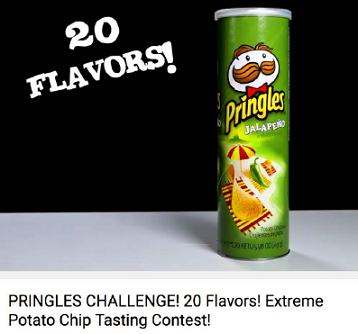Privacy Groups Ask FTC To Investigate Online Influencers

The smarter way to stay on top of broadcasting and cable industry. Sign up below
You are now subscribed
Your newsletter sign-up was successful
A trio of groups concerned about children's online privacy have filed a complaint with the FTC against Google (YouTube), Disney and others over what they say is deceptive online "influencer" marketing to children.
The Center for Digital Democracy, Campaign for a Commercial-Free Childhood and Public Citizen call them ads and other commercial material masquerading as content and want the FTC to investigate the practice, prevent it in the future, and take enforcement action against the companies.
Principally targeted is Google, which the groups say actively solicits, encourages and promotes the influencer content and Collab Creators, Disney-owned Maker Studios, Wild Brain, and DreamWorks-owned AwesomenessTV, which create it.
The groups argue that YouTube videos featuring kids and families promoting products "take unfair advantage of kids, who do not have the ability to recognize that companies use social media (Twitter, Vine, Instagram) and YouTube celebrities to pitch toys, junk food, and other products" using a combination of native advertising, product placement, social media viral communications, vlogging, branded content and more.
In addition to taking action against the companies, the groups want the FTC to come out with policy guidelines that make it clear that using so called "influencers" to encourage children, or their parents, to buy a product is "unfair and deceptive."
While the FTC has very limited rulemaking authority, it can sue companies for unfair and deceptive practices.
“Child-directed influencer marketing is misleading to children because their immature brains do not process or understand advertisements the way adults do—especially advertisements disguised as content,” said Laura Moy of the Institute for Public Representation at Georgetown University Law Center, which is representing the groups.
The smarter way to stay on top of broadcasting and cable industry. Sign up below
Such ads need to be disclosed, but the groups say that is not sufficient. They argue that some of the influencer content is not disclosed, or disclosed in a way that makes it tought to find. "But even if commercial intent and sponsorships were always disclosed, this would not negate the inherent deceptiveness of child-directed influencer marketing," they argue.
The complaint cites various YouTube channels and the influencers who are playing with toys and games or sampling "junk" food as a form of stealth marketing the FTC needs to crack down on.
CDD and the CFCC have previously filed complaints citing YouTube Kids and the mingling of content and advertising via child-directed endorsements. No enforcement action resulted, though YouTube did take steps to give parents more control over their kids online searches.
"YouTube believes that creators should be transparent with their audiences if their content includes paid promotion of any kind," said a YouTube spokerson. "As our long-standing policy makes clear, anyone uploading videos to YouTube has a legal obligation to disclose to YouTube and their viewers if a video contains paid promotion. Any videos that have disclosed paid product placement or endorsements are restricted from the YouTube Kids app."
Contributing editor John Eggerton has been an editor and/or writer on media regulation, legislation and policy for over four decades, including covering the FCC, FTC, Congress, the major media trade associations, and the federal courts. In addition to Multichannel News and Broadcasting + Cable, his work has appeared in Radio World, TV Technology, TV Fax, This Week in Consumer Electronics, Variety and the Encyclopedia Britannica.

